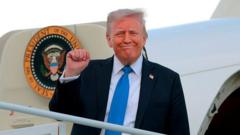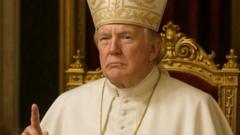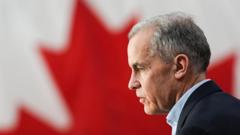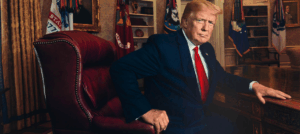In an NBC interview, Donald Trump clarified that he does not seek a third presidential term and acknowledged the constitutional restrictions against it. His comments coincided with discussions on his economic policies, including tariffs, immigration, and potential successors within the Republican Party.
Trump Denies Third Term Intent, Emphasizes Two-Term Rule
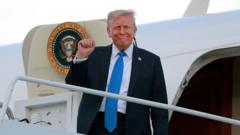
Trump Denies Third Term Intent, Emphasizes Two-Term Rule
The former president reaffirms his commitment to the two-term limit while addressing various economic and policy topics in a recent interview.
Former President Donald Trump has publicly stated that he will not pursue a third term in office, an intention that experts affirm is prohibited by the US Constitution's 22nd Amendment. In an interview on NBC's Meet the Press, Trump declared, "I'll be an eight-year president, I'll be a two-term president," emphasizing the importance of adhering to the law. Although he had previously hinted at a desire for additional terms, he later clarified those statements were meant to provoke "fake news media."
During the interview, Trump, who is 78 years old, acknowledged receiving "requests" from supporters urging him to contemplate remaining in power. He referred to merchandise sales, specifically "Trump 2028" hats, which have fueled speculation regarding his intentions for the future. However, Trump reiterated that seeking a third term is not on his agenda, instead highlighting potential Republican successors, including Vice-President JD Vance and Secretary of State Marco Rubio.
The 22nd Amendment clearly states that "no person shall be elected to the office of the President more than twice," making it nearly impossible for Trump to extend his presidency without significant constitutional changes, which would require widespread legislative approval. Despite this, some supporters have speculated about unverified loopholes in legal interpretations regarding presidential term limits.
Moreover, Trump faced questions regarding his handling of economic policies, especially his tariffs, which have reportedly led to a contraction of the economy for the first time since 2022. He characterized the economic situation as a "transition period," suggesting optimism about future growth while downplaying the impact of tariffs on American consumers.
Addressing concerns about possible violations of due process rights through his immigration policies, Trump defended his administration’s legal approach, relying on his legal team to guide decisions following recent Supreme Court rulings.
In regards to his immigration policies, Trump reaffirmed his declaration of an immigration emergency, stating that the border has never been more secure, while sharing ongoing frustrations with judicial challenges affecting his initiatives.
As he continues to navigate complex issues surrounding his presidency, Trump remains a polarizing figure, drawing contrasting opinions from various political and social perspectives regarding his policies and future within the political landscape.


